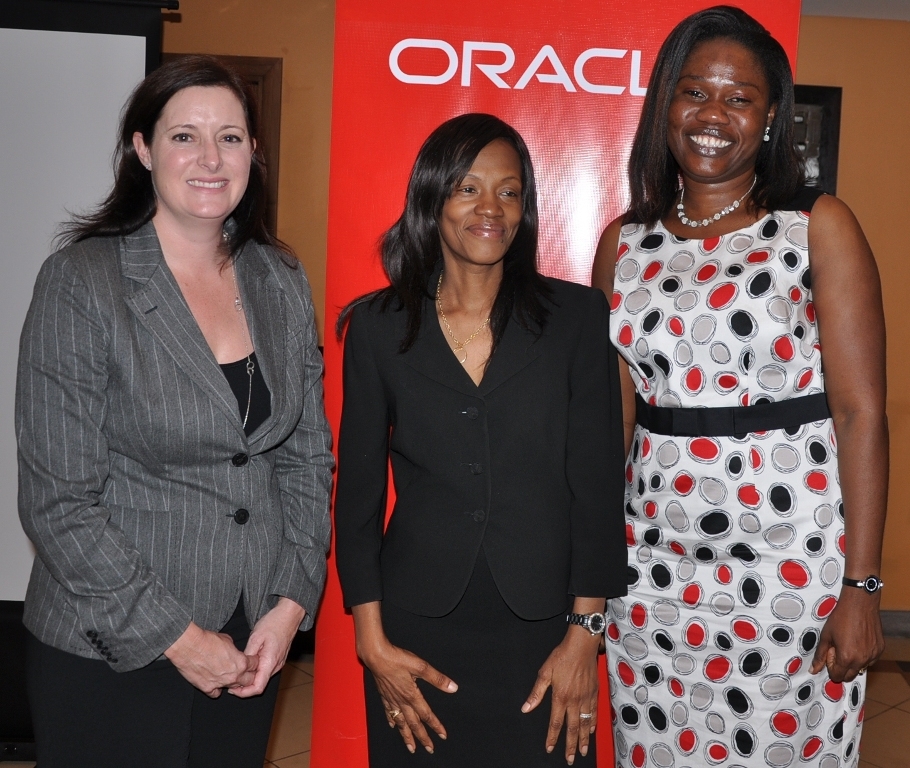New Oracle Research: Nigerian businesses Lag Behind Global Trend of Increased Investment in Financial Reporting Systems.

A recent research from Oracle and Accenture has pointed that inefficient financial reporting in businesses and organizations around the globe leads to Loss of confidence, high costs and also hinders decision making.
Claire Alexander, Oracle PR Manager for Africa, explains last week during a media presentation of the survey in Lagos, Nigeria that all interviews were conducted between 10th February and 15th March 2012 making such findings very relevant.1,123 finance professionals in large organizations (with 250+ employees) in 12 countries around the world where interviewed including Nigeria, South Africa, the UAE, UK, USA, Germany and Russia.

While speaking at the event, Layo Ajayi, Country Manager Oracle Nigeria explained in details the following facts about the survey as it concerns Nigeria. She explains that the research entitled Challenges of Corporate Financial Reporting reveals that companies in Nigeria are not following the global trend of investing in financial reporting systems intended to improve their close, reporting and filing processes, leaving businesses with ineffective solutions and a lack of visibility, quality and confidence in their financial data.
The research highlights that businesses are unable to fully understand the cost of their financial reporting, with 74% of finance professionals unable to identify the total cost. This is remarkably higher than the global average of 60%. The report suggests that a lack of investment in proper software and an over-reliance on spreadsheets and e-mails increases costs and results in ineffectual financial reporting and missed key deadlines.
Further highlight of the research reveals the following:
• Seeking change: Businesses in Nigeria recognize the need to invest in new financial reporting systems to address efficiency challenges. 80 % of surveyed companies have made changes over the last three years to their close, filing and reporting processes. Meanwhile, only 18% have invested substantially in at least one of these three areas over the past 12 months, the lowest in the survey along with the Middle East.
• Insufficient, Ineffective investments: Whilst 16% of businesses in the survey have invested in just one of the three financial reporting phases (close, reporting and filings); only 2% have invested in all three. Unsurprisingly, spreadsheets (68%) and emails (36%) are heavily used to track and manage reporting on a daily basis.
• Increased costs and uncertainty: 28%of finance teams claim to have seen their costs rise across the financial close, reporting and filing processes. Importantly, the situation is so opaque that managers across the finance function are unable to fully understand the financial impact/cost implications of managing and publicizing their company’s financial results. 74% of Nigerian respondents admitted they did not know the total cost of managing and publicizing financial results, whereas 60% of companies globally confessed that they were unable to put a figure to the cost.
• Persistent challenges: Due to inadequate reporting systems, the majority of businesses reported that they still face significant problems with financial reporting. 88% of respondents admitted that they have inadequate visibility of reporting processes as compared with 68% globally, while 82% of finance managers reported that they find it difficult to control the quality of financial data across the course of their reporting, highlighting that additional attention should be paid to performance management.
• Decreased effectiveness: Despite the challenges presented by unreliable and opaque data, finance teams are sanguine about how effectively they can do their jobs. 72% of finance managers feel their effectiveness is limited in some way by data analysis-related issues, most admitting they did not have adequate visibility of reporting processes. Failure to meet formal reporting deadlines was most common in Nigeria, with 32% of businesses indicating that they have missed statutory filings.
• Addressing the challenge: Encouragingly, businesses are intending to take steps to improve financial reporting methods, with 86% of companies likely to make a significant investment over the next five years, an approach which may address many of the challenges they currently face, and bring their reporting processes into line with their performance expectations. 38% of businesses are due to overhaul all three phases of reporting, a slightly lower percentage than the global average (46%).
Gbemisola Aruwayo-Obe, Oracle Applications Manager for Nigeria concluded that Oracle has solutions that will offer Nigerian businesses the needed advantage for effective financial reporting and business optimisation.
Read the full Oracle report here


